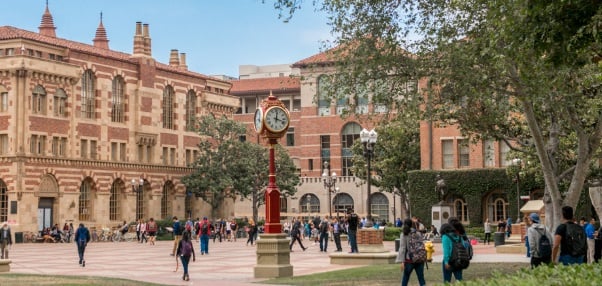
USC has agreed to pay $852 million to settle lawsuits filed by more than 700 plaintiffs alleging former campus gynecologist George Tyndall sexually abused them, the university and attorneys for the plaintiffs jointly announced March 25.
The settlement brings USC's total payouts for claims involving Tyndall to more than $1.1 billion.
The university in 2018 agreed in a class action settlement to set aside $215 million in a fund to pay $2,500 to any class member seen and/or treated by Tyndall. That agreement received final court approval in February 2020. Other lawsuit settlements that have not been made public have totaled roughly $50 million.
It is believed this settlement is the largest ever paid by a U.S. university to resolve alleged wrongdoing involving school personnel. The largest previous payout was by Michigan State University, which in December 2018 agreed to pay $500 million to settle sexual abuse claims by gymnasts and others against Larry Nassar.
Tyndall was hired by USC as its campus gynecologist in August 1989 and served in that capacity until he was suspended in 2016 after a sexual assault complaint. He resigned in 2017.
Tyndall is now under house arrest after pleading not guilty to felony sexual assault charges and is awaiting trial.
Subsequent investigations revealed allegations from hundreds of women that Tyndall abused them in his clinic at the USC Health Center, in some cases sexually assaulting them and in other cases taking photographs of their genital areas.
The revelations in 2017 and 2018, coming on top of a series of other scandals at the university, led to the ouster of then-President Max Nikias.
The litigation that led to the March 25 settlement stemmed from 710 women filing civil cases alleging Tyndall abused them instead of accepting the earlier class action settlement.
“Reaching a fair agreement with these former students has been a top priority for the Board of Trustees and President Carol Folt. We want to thank the plaintiff’s liaison counsel for their willingness to work with us to resolve this litigation responsibly,” USC General Counsel Beong-Soo Kim said in a joint statement from the university and plaintiffs’ attorneys.
John Manly, speaking on behalf of the plaintiffs’ liaison counsel, said, “Our team is humbled by the courage of George Tyndall’s survivors, who endured this process, and hope this settlement brings them healing.”
USC President Folt and USC Board of Trustees chairman Rick Caruso each released statements on the settlement.
“I am deeply sorry for the pain experienced by these valued members of the USC community," Folt said in her statement. "We appreciate the courage of all who came forward and hope this much-needed resolution provides some relief to the women abused by George Tyndall.”
Folt also issued a letter to the USC community in which she summarized the numerous reforms the school has implemented in response to the scandal. Among the changes was the establishment of a new centralized office tasked with preventing and responding to all forms of discrimination and harassment.
Caruso’s statement was more expansive:
“The behavior that was discovered shocks the conscience of the university to its core,” he said. “Our institution fell short by not doing everything it could to protect those who matter to us most — our students, and I am sorry for the pain this caused the very people we were obligated to protect.
“In the aftermath of these reports, I was asked to be board chair,” Caruso continued. “The board immediately took swift action to restore trust, accountability and faith in our university. Our restructured board installed Dr. Folt as president and a new leadership team with a mandate to drive meaningful reforms, through oversight and full accountability.”
Caruso added, “We are steadfast in our commitment to assuring that these steps have the intended impact and reflect real change. Today marks the end of a painful and ugly chapter in the history of our university. More importantly, it signals a critical step forward in strengthening and reweaving the fabric of our community.”
